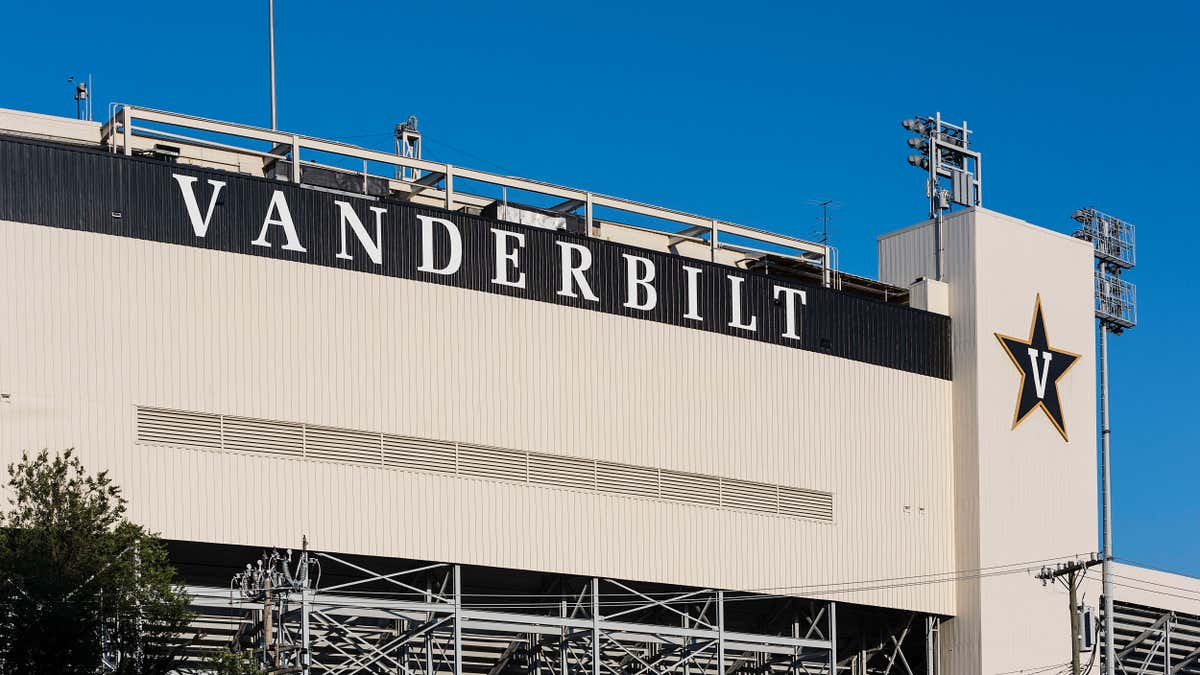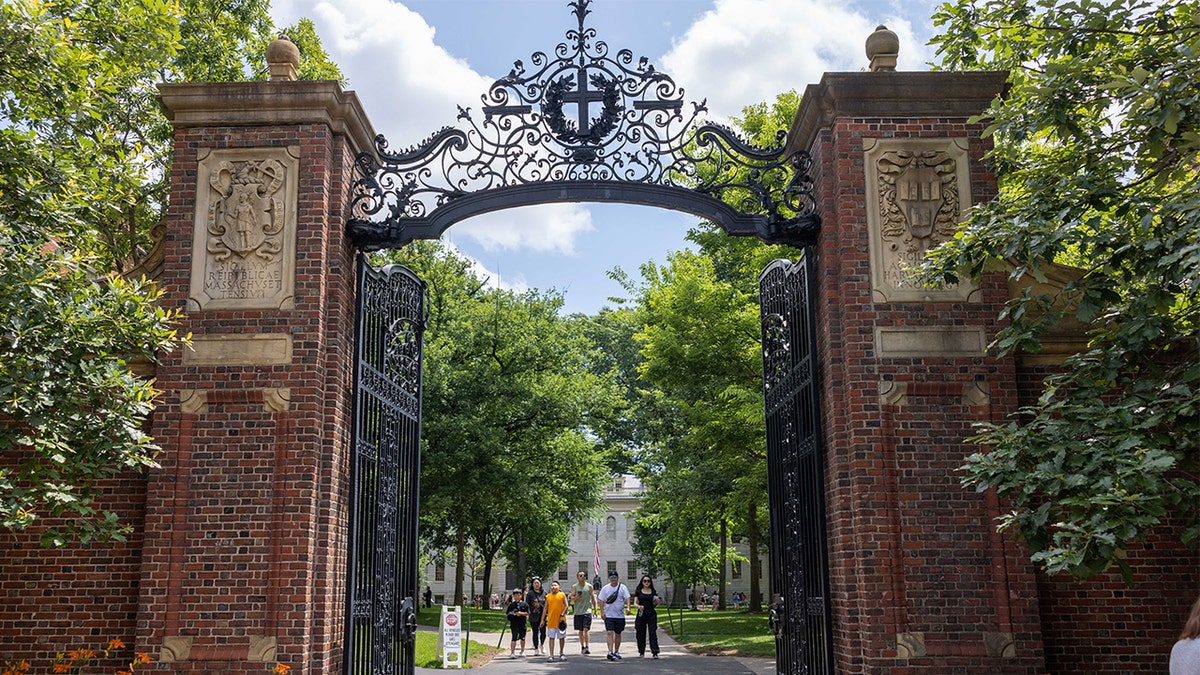Joe DeVito: Colleges need free speech to learn and teach
Comedian Joe DeVito reacts to attacks on free speech in higher education on 'America's Newsroom.'
U.S. News & World Report's famed annual college rankings have been cause for pride but also controversy for years. Its methodological change emphasizing "social mobility" for students and other shifts caused enough tumult this year, however, that some universities are complaining both publicly and even to their own alumni.
While the top of the 2023 rankings released this week looked familiar with Princeton, MIT, Harvard and Stanford at the top of the list, there were also huge surges for many public schools and drops for private ones that reflected major shifts in what it values in universities.
"This year’s rankings placed a greater emphasis on social mobility and outcomes for graduating college students, demonstrating the most significant methodological change in the rankings’ history," the company said alongside its new rankings.
"More than 50% of an institution’s rank now comprises varying outcome measures related to success in enrolling and graduating students from all backgrounds with manageable debt and post-graduate success. In addition, five factors were removed: class size, faculty with terminal degrees, alumni giving, high school class standing and the proportion of graduates who borrow federal loans."

College students walking on campus.
CHARGES FILED IN MYSTERIOUS DEATH OF COLLEGE STUDENT LEFT ON SIDE OF ROAD
In a separate release, U.S. News & World Report published a lengthy explanation of how and why it changed its system. Another alteration was greater emphasis on students given federal Pell grants, need-based grants to low-income students.
Those changes made a difference.
For instance, small class sizes, the New York Times noted, are a point of pride for many elite private schools, and their elimination as a ranking consideration proved injurious to several such institutions. The University of Chicago sunk six spots from No. 6 to No. 12, Wake Forest dropped 18 places to No. 47, and Tulane plummeted from No. 44 to No. 73.
"We believe in and remain committed to academics and the fundamentals that have long defined the UChicago experience — such as our smaller class size and the educational level of instructors, considerations that were eliminated from this year’s U.S. News & World Report ranking metrics," the University of Chicago said in a statement to the Times.
Meanwhile, some public universities saw massive surges.
The University of Texas at San Antonio went up 92 places, California State University, East Bay went up 88 spots and the University of Nevada, Reno went up 68 places, The Hill reported.
Another annoyed school was Vanderbilt University, whose chancellor Daniel Diermeier fired off an email to alumni accusing U.S. News & World Report of being "deeply misleading."

Vanderbilt's chancellor Daniel Diermeier emailed alumni complaining about the new ranking criteria being ‘misleading.' (Photo by John Greim/LightRocket via Getty Images)
"U.S. News has made significant methodological changes that reduce the emphasis on metrics that measure faculty and student quality—and that increase the emphasis on social mobility, which they measure using incomplete and misleading data," he wrote. "Measuring social mobility is an important consideration, to be sure. Vanderbilt is profoundly committed to offering access to qualified students from all backgrounds. But it is deeply misleading for U.S. News to commingle this policy concern with measures of education quality."
MICHIGAN SCHOOL BOARD DEMANDS REMOVAL OF LGBTQ MURAL IN MIDDLE SCHOOL HEALTH CLINIC
Diermeier listed off what he believed were unfair aspects of the rankings that disadvantaged Vanderbilt.
"As a research university, we are particularly distressed by the lack of rigor and competence that has increasingly characterized U.S. News’ annual lists," he wrote.
Reached for comment, a university spokesman directed Fox News Digital to a statement on its website that mirrored Diermeier's message to alumni.
Some feel the emphasis on social mobility was long overdue.
"Social mobility is a worthy measure for college rankings, if only because of the average student's sheer debt," demographic strategist Bradley Schurman told FOX News Digital. "The measure helps students better assess their economic prospects following graduation, especially if they intend to go up the proverbial social ladder; think of it like an investment tool. Given that this is just one measure, top schools, like the Ivy League ones, will continue to dominate the rankings despite having a lower social mobility ranking. Ultimately, don't we all want the best information when making financial decisions?"

Elatia Abate, an entrepreneur and expert on the "future of work," said the changing in the ranking system was an opportunity to students and families to better assess what they wanted out of a school. (Getty Images)
Elatia Abate, an entrepreneur and expert on the "future of work," said the changes in the ranking system were an opportunity for students and families to better assess what they want out of a school. The most elite institutions that dominate the top of the rankings only offer admission to a tiny percentage of applicants, after all.
"The abrupt change in the U.S. News university ranking criteria offers an invitation for students and families who are evaluating their college options to take greater ownership of their choices and dig a little deeper," she told FOX News Digital. "Asking questions like, ‘What is important to me in a university education?" and 'What do I hope to get out of the experience?’ will help applicants determine if what U.S. news prioritizes is aligned with what their future goals entail."
A spokesperson for U.S. News & World Report didn't return a request for comment.
CLICK HERE TO GET THE FOX NEWS APP
For more Culture, Media, Education, Opinion and channel coverage, visit foxnews.com/media









































